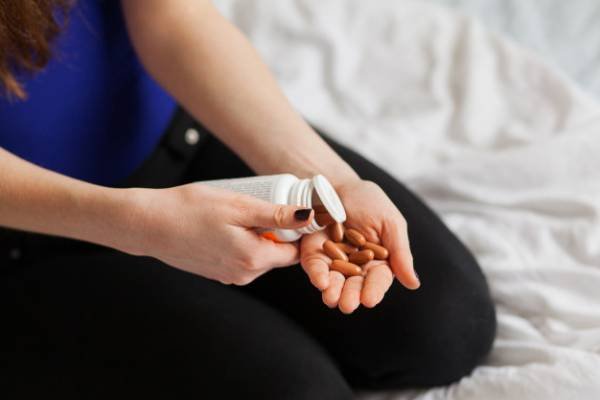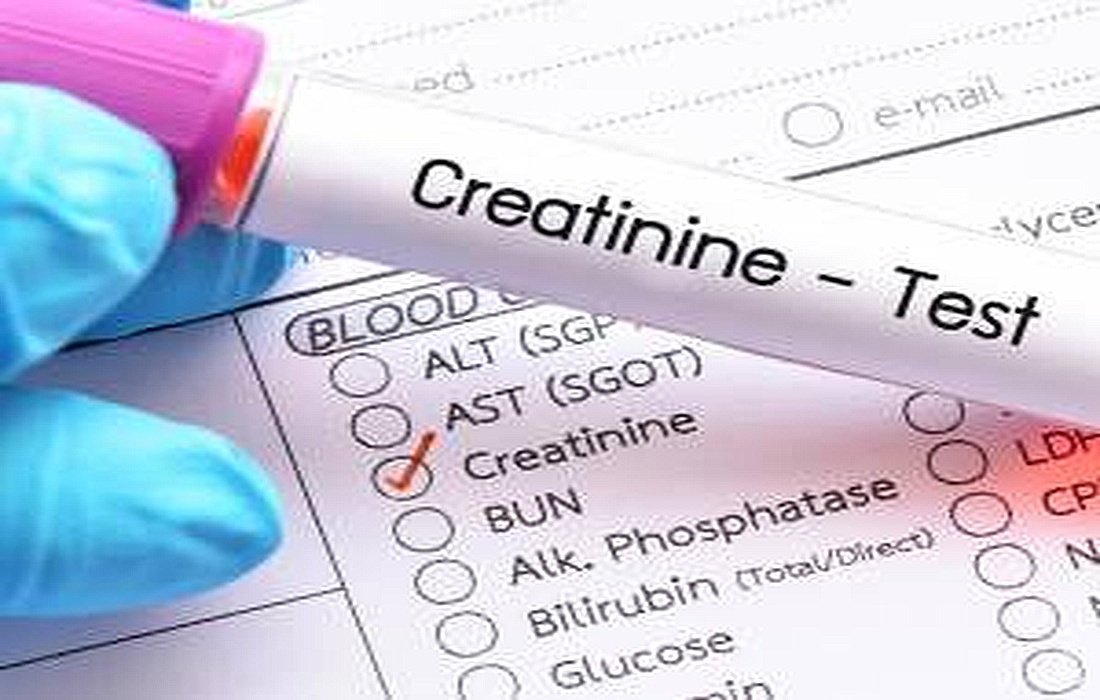From Causes and Symptoms to EffectsBody creatine deficiency
Creatine is a nitrogen-containing organic acid that helps supply energy to cells throughout the body, especially muscle cells. It naturally exists in red meat and fish, and the body can also produce it, or it can be obtained from supplements. Low creatine levels in the body can indicate that the liver or muscles are not functioning well.
Athletes use creatine supplements to improve their performance, while older adults use them to increase muscle mass. Some evidence suggests that creatine may help prevent.Skin Agingand treat muscle diseases, help people with MS, and enhance cognitive ability, among other benefits.
What is Creatine?
Creatine is composed of three amino acids: glycine, arginine, and methionine, which make up about 1% of the total blood volume in humans. About 95% of creatine is stored in skeletal muscles and 5% is found in the brain.
Between 1.5% and 2% of the body’s creatine reserve is converted for daily use by the liver, kidneys, and pancreas. Creatine is transported via the blood and utilized by body parts that require high energy, such as skeletal muscles and the brain.
As you read in the health sectionSelMagzyou will find that various types of creatine are used in supplements, including creatine monohydrate and creatine nitrate.
Creatine levels vary from person to person due to factors such as body size, age, or gender.
Source and Required Amount of Creatine in the Body:
A person needs between 1 to 3 grams of creatine daily, getting about half from diet and the rest produced by the body. Athletes who train intensely may need to consume between 5 to 10 grams of creatine daily. Individuals who cannot produce enough creatine daily due to illness may need 10 to 30 grams of supplements daily.

Uses of Creatine:
Creatine is one of the most popular supplements in the United States, especially among those participating in ice hockey, football, baseball, and wrestling.
It is also the most common supplement in sports nutrition products, including sports drinks.
Improving Sports Performance:
- Athletes typically use creatine supplements because there is evidence of their effectiveness.
- Resistance training effects increase strength and body volume.
- It enhances endurance performance in aerobic sports activities lasting over 150 seconds.
- It may improve strength, volume, daily performance, and neurological performance.
- Athletes seem to engage in anaerobic sports.
Increase in Body Mass:
Increasing creatine levels in muscles results in greater body mass.
However, studies have shown that creatine does not build muscle; rather, the increase in body mass occurs due to water retention by creatine. Muscle mass may also result from hard work during exercise.
Healing Post-Injury Damage:
Research shows that creatine supplements may help prevent muscle damage and improve recovery processes after injuries in athletes.
Creatine may also have antioxidant effects after a session of intense resistance training and help reduce muscle cramping. It might play a role in brain rehabilitation and other injuries.
Creatine Deficiency Syndrome:
Creatine is a natural substance and is essential for a wide range of body functions.
Creatine deficiency is linked to a wide array of diseases.
- Chronic Obstructive Pulmonary Disease (COPD)
- Congestive Heart Failure (CHF)
- Depression
- Diabetes
- Multiple Sclerosis (MS)
- Muscle Weakness
- DiseasesParkinson’s Disease
- Fibromyalgia
- Arthritis
Oral creatine supplements may alleviate these diseases, but there is still insufficient evidence to support this claim.
Supplements are also consumed to increase creatine levels in the brain, which may alleviate depression, symptoms ofAutismand motor disorders.
The consumption of creatine supplements in individuals over 8 years shows improvements in concentration, but not everyone responds the same way.

Muscle Wasting:
Creatine may help strengthen individuals with muscle wasting. A study in 2013 found that individuals with muscle wasting who consumed creatine supplements experienced an 8.5% increase in muscle strength compared to those who did not use this supplement. Daily use of creatine for 8 to 16 weeks might improve muscle strength and reduce fatigue in individuals with muscle wasting.
Parkinson’s Disease:
In animal models of Parkinson’s disease, creatine was able to prevent the loss of cells typically affected. Animal studies suggest that it may help treat neurogenic diseases such as Parkinson’s and Huntington’s disease.
Depression:
A study involving 14 women indicates that creatine helps in treating depression and methamphetamine addiction.
Cognitive Ability:
In 2003, researchers published evidence showing that creatine might enhance mental performance. Among about 45 participants, those who took 5 grams of creatine daily for 6 weeks performed better on memory tests than those who did not take the supplement.
Creatine Safety:
Taking creatine at recommended doses is considered “safe.” At higher doses, it is “probably safe,” but it is expected to affect the liver, kidneys, or heart, although these effects have not been confirmed.
Other possible effects include:
- Stomach pain
- Nausea
- Muscle contractions
- Diarrhea
People with kidney disease or diabetes are advised not to use creatine, and additionally, they should avoid this supplement duringPregnancyor breastfeeding.
Using creatine can lead toWeight Gainwhich may mostly be due to water retention. However, it can negatively impact athletes in certain weight classes. It may also affect performance in activities where balance is a factor.
Effects at High Doses:
More research is needed to determine how high doses of creatine may affect body function. Creatine can lead to lower blood glucose levels, which may affect individuals with diabetes, or raise blood pressure, affecting those withHypertensionThey also recommend that individuals with these conditions proceed with caution:

Deep Vein Thrombosis (DVT)
- Electrolyte imbalances
- Gastrointestinal disorders
- Irregular heartbeats
- Kidney stonesor liver diseases
- MigrainesLow blood pressure upon standing
- Bipolar Disorder
- Creatine is a bioactive substance, and individuals should exercise caution in its use.
- Creatine Interactions:
Currently, several energy drinks are combined with
Caffeine
and Ephedra, raising concerns that they might have serious negative effects on athletes.Creatine affects body water levels, and using it with diuretics may lead to dehydration.Combining creatine with any medication that affects the kidneys is not recommended. Its use together with Probenecid, a drug for
Gout
may increase the risk of kidney damage.Causes of Creatine Deficiency in the BodyFour main reasons for creatine deficiency:
Low muscle mass
Liver problems
- Diet
- Pregnancy
- or illness
- Muscle MassCreatine levels are often related to muscle mass, which can decrease with age or illness.
Low levels may indicate that muscles are weak or degrading.
Older adults typically lose some muscle mass as they age, which is usually not a serious condition.
Liver Problems
Creatine is produced in the liver, and an unhealthy liver that does not function properly will not be able to create normal amounts of creatine.
In patients with chronic liver disease, creatine production decreases by about 50%, leading to lower blood levels that can be checked with a simple blood test called serum creatine.
Diet and Creatine Needs:
Although creatine is naturally produced in the body, small amounts are provided by food. Thus, creatine deficiency may be diet-related. Creatine is mainly found in meat, so those on vegetarian or low-protein diets are likely to have lower levels of creatine compared to those who consume meat.Pregnancy:Pregnancy often leads to creatine deficiency, which typically returns to normal after childbirth.
Treatment for Creatine Deficiency:
Low creatine levels may indicate various diseases, so a doctor will examine test results alongside other factors.
If low creatine levels are accompanied by other symptoms, it may indicate that a person
has liver disease
which treatment may start with medication and lifestyle changes.
- If a person has a muscle disease, treatment may include physical therapy, medication, or surgery.
- Uses of Creatine SupplementsTreatment for Creatine Deficiency in the BodyDepression
- The Impact of Creatine Deficiency on Depression







